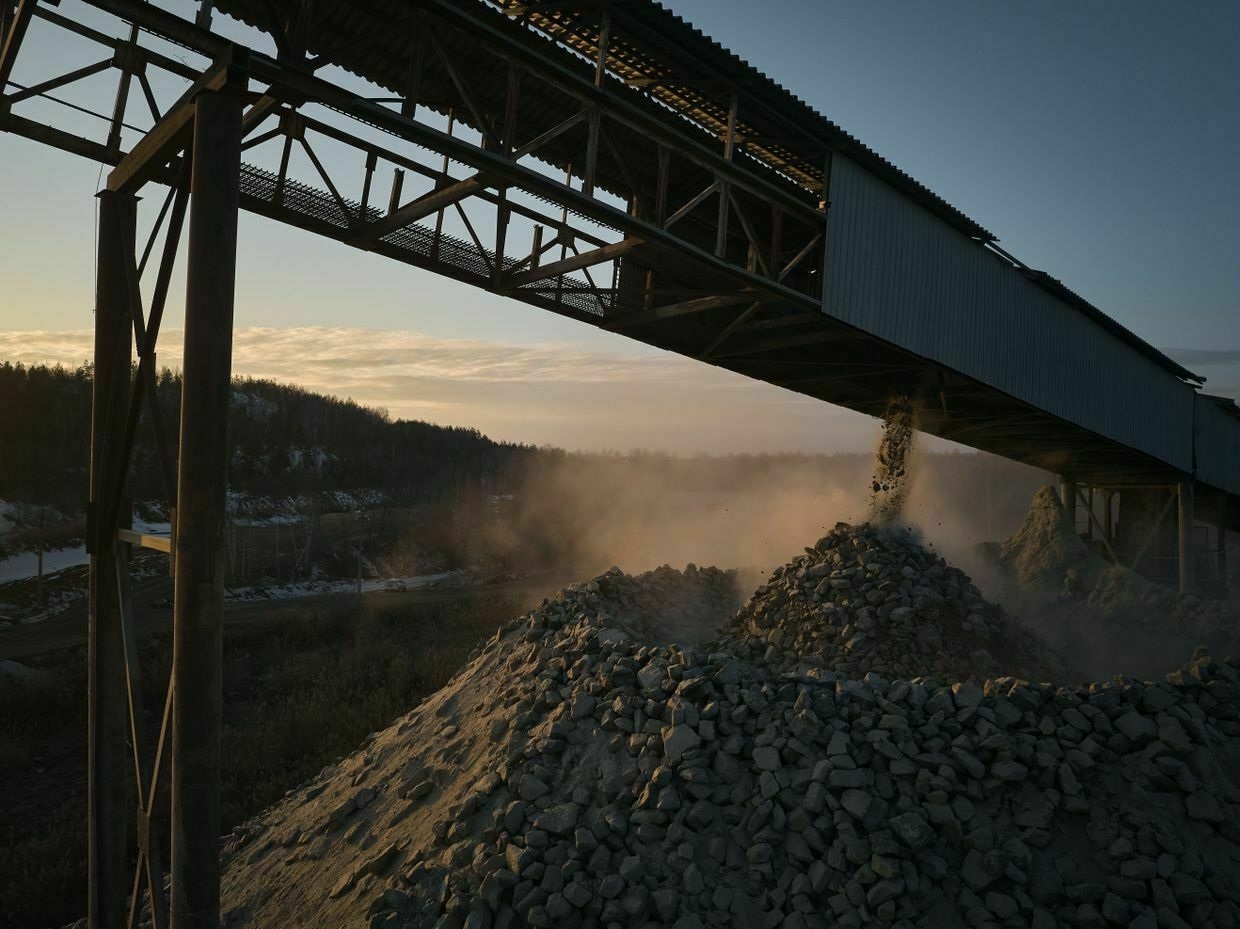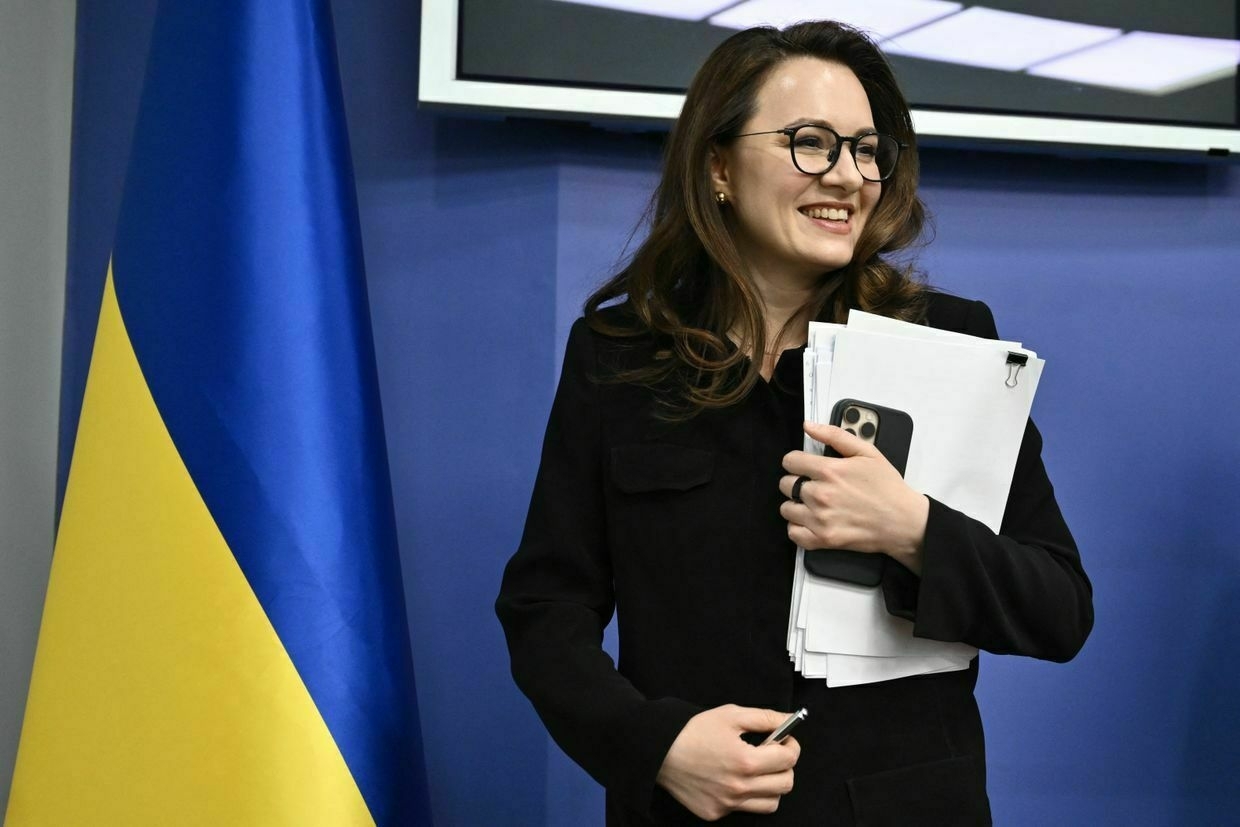
This week, thousands of companies, business heads, and global leaders are headed to Rome for the fourth Ukraine Recovery Conference on July 10, with many companies hoping for more clarity around the future of a U.S.-Ukraine minerals deal.
It’s been over two months since President Volodymyr Zelensky signed Washington’s so-called “minerals deal” — which, in reality, covers all Ukraine’s natural resources, including oil and gas, related infrastructure, and now, defense projects.
While the Economy Ministry has released some details on initial projects that could be financed by the investment fund created under the deal, businesses say they are still waiting for practical information about how investors will access tenders and projects.
“I expect more than some real projects will be presented (at the URC) and some real work will start between some specific investors and specific Ukrainian companies after this conference,” Andrii Brodsky, CEO of Ukrainian titanium company Velta, told the Kyiv Independent.
Ukrainian businesses told the Kyiv Independent that they think the URC, Ukraine’s largest reconstruction conference, will be the place for big developments on the fund. But as the U.S. continues to weigh sending more military aid to Ukraine after reports emerged it had halted a shipment of military aid, it’s unclear whether the U.S. shares the same high expectations. It’s also unknown, what if anything, the U.S. is planning around the deal at the conference.
Despite the uncertainty, Brodsky says there’s been a lot of action behind the scenes between the fund’s two developers, Ukraine’s Support Public-Private Partnership Agency (PPP Agency) and the United States International Development Finance Corporation (DFC).
Oleksii Sobolev, a deputy to Ukraine’s Economy Minister Yuliia Svyrydenko, told the Kyiv Independent in an interview published on July 7 that “right now, (Ukraine has) more than weekly communications with the DFC and (U.S. Treasury) Secretary Scott Bessent’s people, who are pushing this forward."
The URC
Both Ukrainian President Volodymyr Zelensky and Italian Prime Minister Giorgia Meloni are expected to attend the URC and hold meetings with world leaders on Ukraine’s strategic recovery program on July 10 and 11.
Previous URC events in Berlin, London, and Lugano, have been more focused on Ukraine’s urgent needs, like energy security. After Russia wiped out half of Ukraine’s energy infrastructure last year, the U.S. and the European Bank for Reconstruction and Development (EBRD) announced financial support for Ukraine’s energy facilities at the URC in Berlin.
This year, for the first time, Ukraine is also hoping to focus on defense. “We expect the signing of agreements (in the defense industry) between Ukrainian and foreign partners in the field of production, innovation, and technology,” Ukraine’s Economy Ministry told Forbes Ukraine.
The URC is an important event to continue support for Ukraine and a useful mechanism for organizations to sign deals, EBRD Vice President for Policy and Partnerships Mark Bowman told the Kyiv Independent on June 12. For government and financial institutions like the EBRD and European Investment Bank (EIB), the conference is also a chance to announce new support and investments.
But in Rome, talk of the minerals deal has excited the possibility of tangible deals for the private sector companies, something that has been missing from previous conferences. Zelensky has stressed the importance of the private sector in Ukraine’s recovery, and many of the extractive companies that will likely partner with U.S. investors are attending the conference, like Ukrainian giant BGV and UkrLithiumMining.
The U.S.-Ukraine Business Council, a Washington-based business advocacy group advising businesses working in Ukraine, will also hold side events at the URC. The group saw three new members in June, including mining and metals investment company TechMet, which is expected to bid on a Ukrainian lithium mine, signaling that American companies are starting to take the agreement seriously, and the council expects more will sign up once the fund is up and running.
The International Chambers of Commerce (ICC) will use the conference to push for more complete risk coverage, General Secretary John Denton previously told the Kyiv Independent in an interview. In particular, the ICC will problem-solve with export credit agencies on how to cover 100% of deals.
The big game changer, though, is that under the fund, the DFC is able to cover war risk insurance in Ukraine, said Brodsky. While war risk insurance programs do exist in Ukraine, they are few and far between, which deters foreign investors from Ukraine while the war is ongoing.
“The option to get loans from the fund backed by the DFC creates great appetite in the eyes of investors,” he said.
What we know about the minerals deal so far
The Ukrainian side has presented at least eight projects for investment with the pilot project already underway, the Dobra lithium mine in central Ukraine. Ukraine’s Economy Minister Yulia Svyrydenko confirmed that the U.S. government-backed company TechMet is likely to bid on the mine, having eyed up the deposit since 2023.
“The movement has already begun,” she wrote in a Facebook post on July 3.
“We will definitely inform (the public) about the announcement of the competition. All interested investors should have access to it. To make everything competitive and in compliance with the law.”
Svyrydenko told the Kyiv Independent in an interview that other projects presented to the DFC that the fund could potentially finance include a shelf and deepwater project, and the country’s largest oil refinery.
TechMet, which focuses on key minerals used in green energy, AI, and tech, has some serious financial backers, including the DFC. One of President Donald Trump’s allies, billionaire Ronald Lauder, will also join TechMet as an investment partner in the Dobra project, the Financial Times reported.
Svrydenko has said that she wants to get the first three projects off the ground in 18 months and expects the fund to be operational by the end of the year. On July 3, Zelensky signed off on changes to the Budget Code, enshrining the agreement into law and knocking down one of the bureaucratic hurdles.
A week before, Zelensky and Trump discussed the deal on the sidelines of the NATO summit in the Hague on June 25. Zelensky said that the conversation was productive and sent a “good signal."
The PPP and DFC announced information on June 30 that Ukraine will contribute 50% of revenues from the assets covered by the deal to the fund over 10 years. The board will also be equally represented by Ukrainians and American managers. Four specialized committees will oversee investment screening, investment, administration, and auditing.
The two bodies have not provided specific information on how exactly the U.S. deal wouldn’t clash with Ukraine’s 2021 memorandum of understanding with the EU for its critical materials. The agreement says it won’t undermine Ukraine’s EU obligations, but how that looks in practice is uncertain.
The limited number of projects that are ready for investment is also a concern, said Brodsky. There are only four or five players in Ukraine ready for U.S. investors who hold the licenses, understand the market, and have the assets.
“Each of these companies right now is ready to realize just one project. And this is actually not a very big amount of money,” he said.
In the lead-up to the URC, Ukraine’s Ecology Ministry made a historic decision by quickly declassifying data on material deposits that have long been a state secret on June 11, less than two months after the sealing the deal. While tens of thousands of documents still need to be digitized and translated, it’s a big win for Ukrainian companies that have fought for decades against political inertia to publish the data.
At the start of the minerals deal talks, the Ukrainian government said that the country houses some $26 trillion worth of natural resources.
 The Kyiv IndependentLiliane Bivings
The Kyiv IndependentLiliane Bivings
